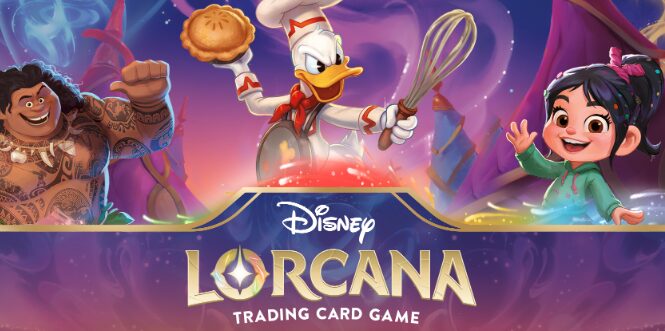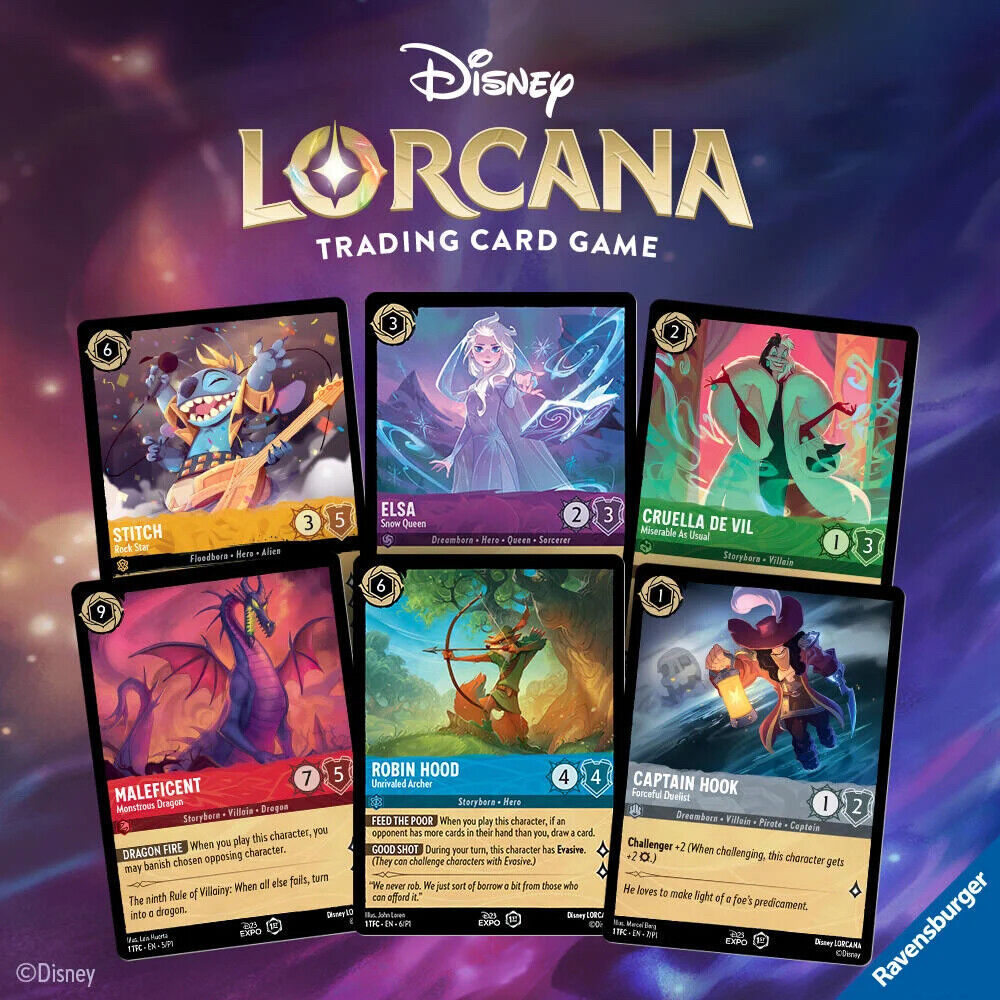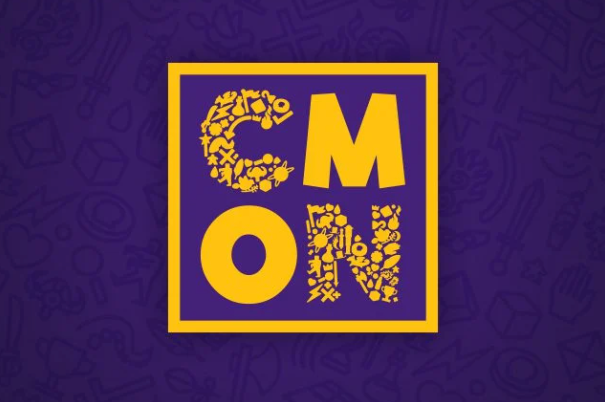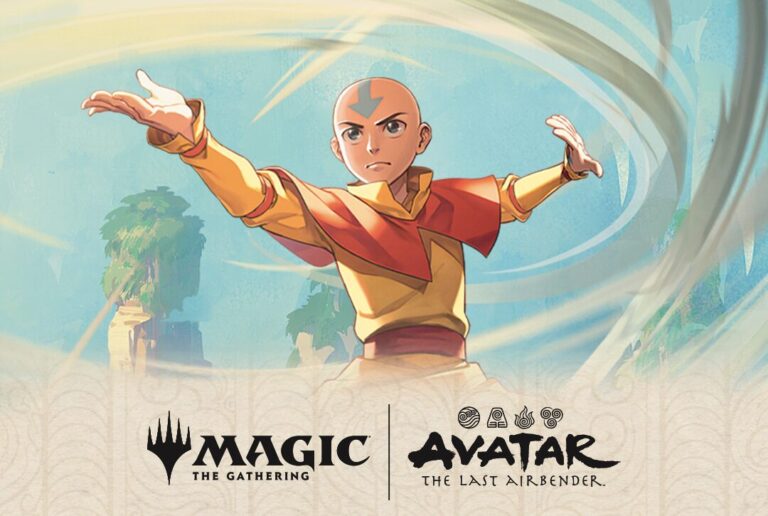
Upper Deck brings new claim against Ravensburger in Disney Lorcana lawsuit after losing all its existing claims against publisher, trial of designer Ryan Miller to start next month
Trading card company Upper Deck has brought a fresh legal claim against Disney Lorcana publisher Ravensburger accusing it of stealing trade secrets, days after a court rejected all its prior claims against the publisher contending the game’s design was stolen from it.
Upper Deck began its lawsuit against Ravensburger and Lorcana lead designer Ryan Miller more than two years ago, alleging the designer took his work on Upper Deck’s previously unannounced game Rush of Ikorr with him when he left the company in 2020, transporting it to his new employer Ravensburger.
Filings made by Upper Deck last September said Lorcana had “remarkable, uncanny similarities” to Rush of Ikorr, and the company claimed Miller was “aided and encouraged” by Ravensburger in stealing the designs.
But Judge Kymberly Evanson, a federal judge in Seattle, ruled on October 3 in favour of Ravensburger in all of Upper Deck’s claims against it – which included allegations of copyright infringement, fraudulent misrepresentation and concealment, and unfair competition.
A final claim against Miller alleging breach of contract is set to go to trial in the second week of November – and Upper Deck has now attempted to bring Ravensburger back into the lawsuit by amending its complaint, accusing the publisher and Miller of “misappropriation of trade secrets”.
Upper Deck had claimed a swathe of Lorcana mechanisms were “substantially similar” to effects in Rush of Ikorr, such as characters only being able to challenge other characters of the same type, characters adding to the strength of other characters, and a point-scoring system which requires characters to “exhaust”, leaving them open to attack.

But the court ruled that “although the games are somewhat similar, ‘there is no more than the similarity
that must unavoidably be produced by anyone who wishes to use and restate the unprotectable
ideas contained’ in Rush of Ikorr and pre-existing TCGs.”
The court said Upper Deck also failed to introduce evidence that Miller directly lifted his March 2020 design for what would become Rush of Ikorr – then named ‘Pantheon’ or ‘Version 2.6’ – to create Lorcana, and did not show that Miller or Ravensburger “copied any expressive work”.
Judge Evanson also denied Upper Deck’s claim that Miller concealed his real reason for leaving the company in 2020, having told the company he was looking for full-time work with benefits rather than freelance roles.
The company had attempted to point to Miller’s statements that he was a “Disney fan” and “excited about working on a Disney game” to support its claim that Miller hid his “primary motive” for leaving Upper Deck, which it said was to work on a Disney TCG at Ravensburger.
Upper Deck had also taken issue with Miller’s failure to disclose that he worked on Lorcana and Rush of Ikorr simultaneously – but the court pointed to Miller’s status as a freelance contractor, and not subject to a non-compete agreement, as undermining that argument.
The court ruling said, “It is common for game design freelancers to work on multiple projects simultaneously given the pay scale of contract for hire work.
“Thus, Upper Deck fails to raise triable issues as to multiple elements of fraudulent concealment, and the court grants summary judgment on this claim.”
A statement from Ravensburger made yesterday said, “As has been the company’s position throughout this lengthy and consuming process, trading card game mechanics such as those referred to in the lawsuit are not subject to frivolous legal actions.”
Greg Tito, director of communication at Ravensburger, said, “This judgment is important for more than just this case, since Ravensburger’s steadfastness in rigorously defending against this lawsuit has protected game designers across the industry from this type of litigation in the future.
“We stand by our game designers as we stand by all our employees to operate with integrity and honesty in the work of designing, manufacturing, and marketing games for millions of fans to enjoy for years to come.”
Ravensburger counsel David Perez, said, “After reviewing all the facts in this case, the court concluded that no reasonable person could find copyright infringement – which is what Ravensburger has been arguing since day one.
“Notably, several current and former game developers who worked at Upper Deck came out strongly in favor of Ravensburger, testifying that the game mechanics Upper Deck was claiming to be confidential were no more than ‘generic’ mechanics that have existed for decades.
“That Upper Deck’s own developers disagreed so strongly with Upper Deck’s case shows that these claims should never have been filed in the first place.”
Upper Deck filed its initial lawsuit in June 2023, two months before the high-profile release of Lorcana at Gen Con – which saw huge queues to pick up copies of the game, with some fans waiting in line overnight in order to pick up the game’s first releases.
The game’s ninth expansion, Whispers in the Well, is due to be released next month, with expansion ten, Winterspell, slated for a Q1 2026 release.
Upper Deck released Rush of Ikorr in June of this year.







[…] Upper Deck brings new claim against Ravensburger in Disney Lorcana lawsuit after losing all its exis… […]
[…] Upper Deck brings new claim against Ravensburger in Disney Lorcana lawsuit after losing all its exis… […]